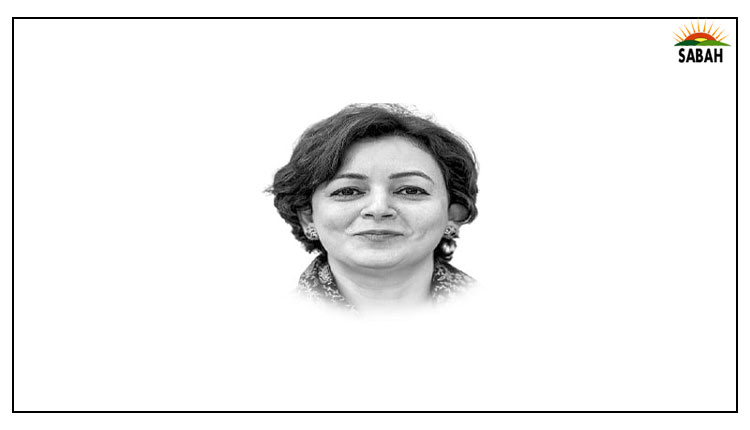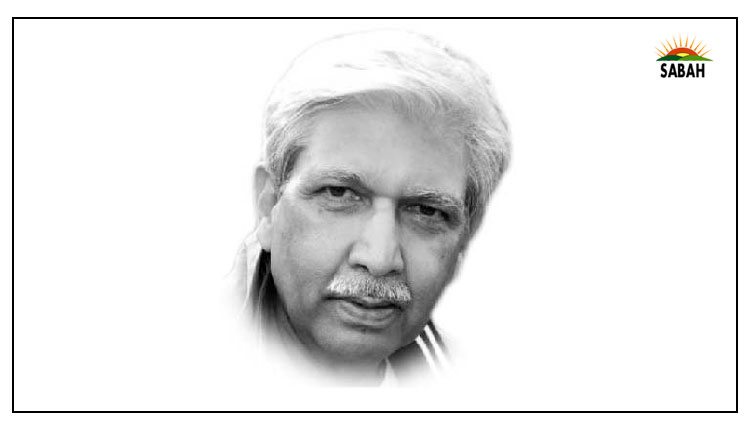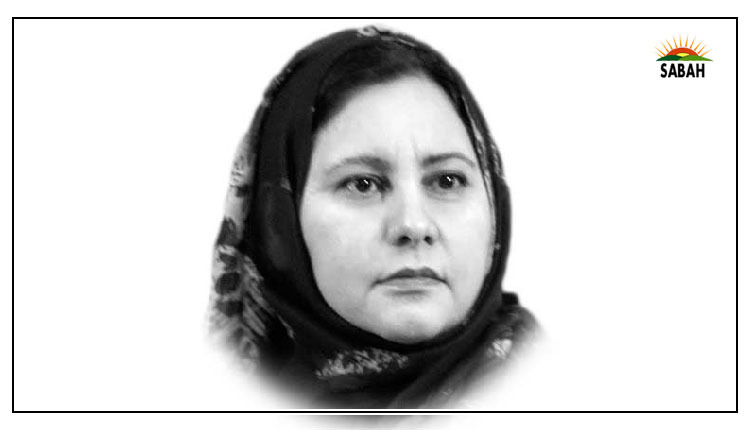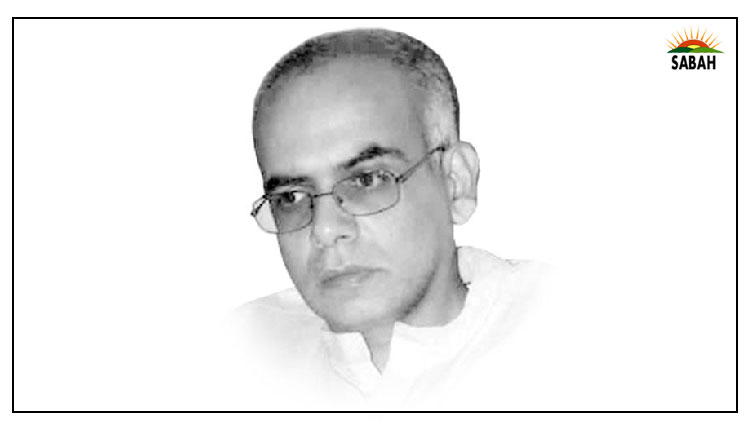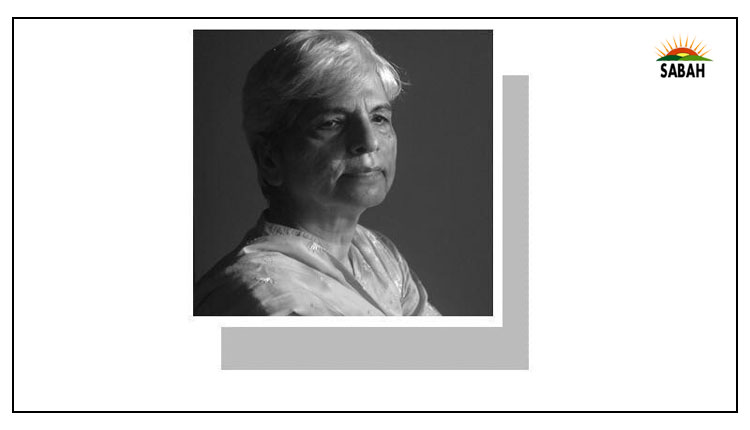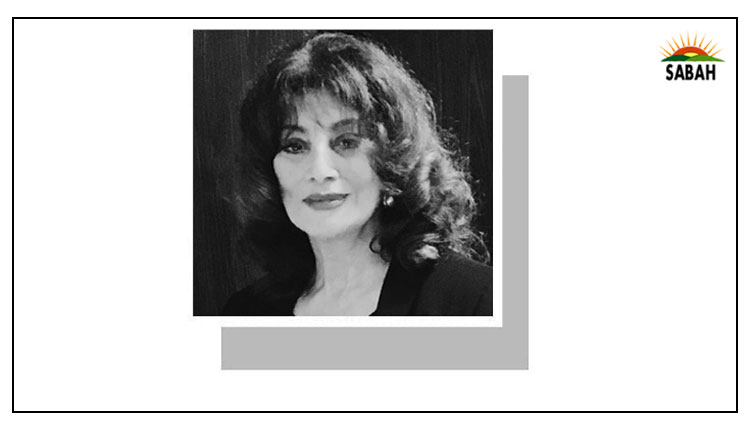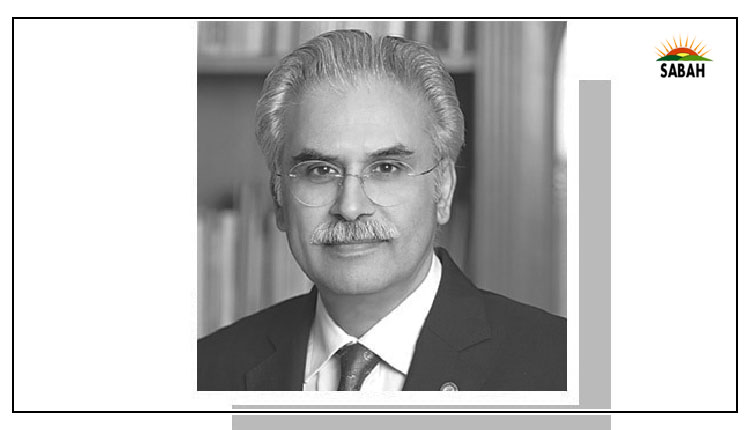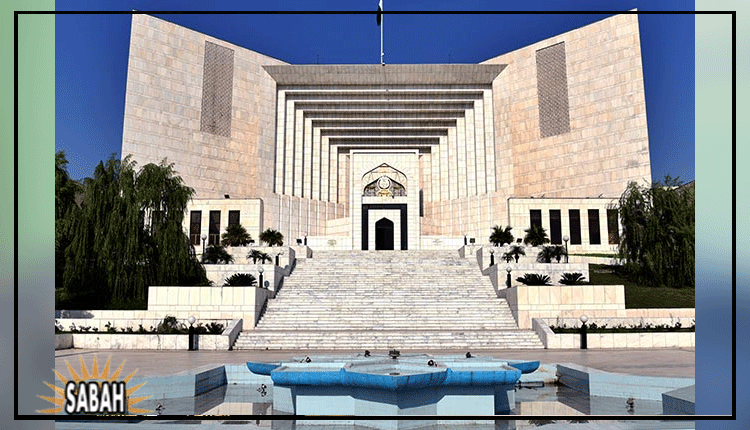SC bench headed by Justice Ijazul Ahsan allows PTI to hold protest in H-9 area of Islamabad, restrains govt from making arrests
ISLAMABAD, May 25 (SABAH): The Supreme Court of Pakistan on Wednesday directed the federal government to provide the Pakistan Tehreek-e-Insaf (PTI) with a ground between the H-9 and G-9 areas of Islamabad to hold its public gathering.
When the hearing resumed after a break on Wednesday, the Attorney General for Pakistan Ashtar Ausaf Ali told the three-member bench headed by Justice Ijazul Ahsan and Comprising Justice Munib Akhtar and Justice Sayyed Mazahar Ali Akbar Naqvi that the ground being asked to given the PTI only had the capacity to accommodate 10,000 people. He also added that a Sunday bazaar and Sirinigar Highway is also near the venue.
However, the bench did not pay any heed to the attorney general’s advice and directed the government to provide security of the gathering within three hours. “Talks between the government committee and PTI committee should be held at 10:00 PM tonight at the chief commissioner’s office,” said the court. It directed the deputy commissioner, interior secretary and IG Islamabad to make the sure the meeting happens.
The bench also noted that the court can take back its decision at any point and change or take back its orders at any point. It also ordered the government not to arrest any leader of any political party.
“Arrested political leadership and workers should be freed at once,” said the court. It also ordered the government to follow the point agreed between the JUI-F and PTI during the former’s 2019 long march.
“Any new clause should be included in the agreement through mutual consultation and the court should also be informed,” said the bench.
Islamabad Chief Commissioner Amer Ali Ahmed assured the court that its orders will be followed whatever they may be.
Before the break, the court had directed the authorities concerned to hold consultations over permission for the PTI rally on H9 ground and update the court on the outcome.
The directives came during a hearing of petition filed by Islamabad High Court Bar Association (IHCBA) President Mohammad Shoaib Shaheen against the government’s decision to block roads to stop PTI’s ‘Azadi March’ taking place on Wednesday in the federal capital.
A three-member bench of the SC, headed by Justice Ijazul Ahsan, was hearing the plea. Islamabad chief commissioner and Inspector-General of Police (IGP) Akbar Nasir Khan appeared before the court during the hearing.
PTI’s counsel Babar Awan presented the party’s request for permission to hold a rally at the H9 ground.
Awan informed the court that PTI Chairman and former PM Imran Khan has four demands which include the provision of H-9 ground for the rally, the release of all the arrested party workers and leaders and removal of all the barricades, blocking routes leading to Islamabad.
AGP Ashtar Ausaf Ali conveyed Prime Minister Shehbaz Sharif’s message that he believes in the rule of law. He said that the premier has formed a committee which will decide on the venue for the PTI rally and the use of words. The AGP assured the court of protecting every citizen.
Earlier, the Supreme Court asked Attorney General Ashtar Ausaf to seek directions from Prime Minister Shehbaz Sharif over the PTI’s demands regarding its Azadi March.
PTI lawyer Babar Awan appeared on the rostrum when the hearing resumed after a short break around 3pm. He told the court that the party had asked for permission to stage the march on May 23.
Awan called on the court to issue directives to the government. He demanded that the blockades placed on roads be lifted and the arrested PTI workers be released immediately. He assured the court that the party would adhere to its directives.
Justice Ahsan remarked that there was a lack of communication and trust between the government and the PTI.
Awan told the court that Imran had formed a four-member committee for talks with the administration, comprising him, Faisal Chaudhry, Amir Mahmood Kiyani and Ali Nawaz Awan. He asked the court to allow the PTI to stage a protest at Srinagar Highway.
“We want to protest where the JUI-F staged a sit-in twice in the past,” he said, assuring the court that it would be peaceful and not affect routine life. He also urged the court to intervene against the tear gas shelling by the authorities on the protesters.
The apex court directed the attorney general to seek directions from Prime Minister Shehbaz Sharif regarding the PTI’s demands. The AG should inform the court after an hour after seeking instructions from the PM, the court said.
Justice Ahsan said that the PTI’s demands were clear and expressed hope that parties would reach a decision within an hour.
The attorney general said the PM would soon nominate a team for talks with the PTI. “The prime minister wants political matters to be settled outside of court,” he said.
Once the hearing resumed, Justice Ahsan asked Awan how long the PTI planned to protest. The PTI counsel excused himself from answering the query, saying: “This is a political decision. Let it be decided on a political forum.”
Awan reiterated that his party’s demand was to have immediate elections as he refused to engage with the attorney general on that topic.
Justice Ahsan remarked that pre-empting protests by way of raids and arrests was an “illegal act” but also said that “the PTI won’t be allowed to close the Motorway or Faizabad [interchange].”
He said the court would issue a formal order regarding shelling and baton charge.
Meanwhile, Justice Naqvi said that “the FIRs filed under the MPO won’t fly.” At this, Justice Ahsan said that an order will also be issued about the MPO.
The Supreme Court bench expressed its displeasure at action taken by the Punjab police. “Is the police mandated to smash cars and set fire?”
The additional advocate general Punjab appeared to justify police action by telling the court that “weapons were found from a home in Lahore.”
“Weapons are kept in every house these days,” justice Naqvi said. “What is this weapons story being told [to the court] since this morning. Just stop with this weapons story now.
Justice Ahsan said that Lahore has been turned into a “battlefield. “What’s happening there is unfortunate,” he added.
Islamabad chief commissioner told to provide alternate site
Earlier on Wednesday, the apex court directed the Islamabad chief commissioner to provide an alternate site to the PTI to hold its Azadi March by 2:30 PM and create a traffic plan for protesters so they could reach it.
“Let them protest and then go home,” Justice Ahsan said. “We expect the government to remove barricades.” The court directed the interior secretary and police to review their policies on road closures.
Justice Ahsan said the court would also seek assurances from the PTI that the protest would be peaceful, property would not be damaged and there would be no torture or violence.
Earlier on Wednesday, the court directed the interior secretary, Islamabad’s chief commissioner, deputy commissioner, inspector general of police and advocate general to appear in the court at 12:00 PM. The apex court issued notices to provincial governments as well.
When the hearing resumed after 12:00 PM, Justice Ahsan said the officials, along with the attorney general, should find a solution.
He also directed PTI’s lawyer Faisal Chaudhry to “sit at the negotiating table” with the administration officials and gave him time till 2:30 PM to get instructions from the party leadership in this regard.
The court also directed authorities to provide complete protection to PTI leaders for the negotiations.
“If the PTI fears arrests, it should provide us with a list. We will protect those who fear arrests,” Justice Ahsan said.
He added said political parties had their own interests but they were secondary to the country and the people.
Meanwhile, Attorney General Ashtar Ausaf told the Supreme Court that the government did not allow the PTI to hold its Azadi March on Islamabad’s Srinagar Highway because there was a “threat” to party chairman Imran Khan’s life according to reports from security agencies.
“The permission to gather at Srinagar Highway was denied due to the security situation. Imran Khan’s life is in danger as per reports of security agencies. Security agencies have raised fears of a suicide attack on the former prime minister.”
However, Justice Ahsan said the AGP was deviating from the original issue and asked whether the police were conducting raids and arresting PTI leaders and workers.
“If the government has a problem [with the march] on Srinagar Highway, why are Lahore and Sargodha and the rest of the country closed?” Justice Ahsan asked, while Justice Akhtar questioned:
“Is the threat to political leadership only on Srinagar Highway?
Justice Naqvi asked the interior secretary whether he was ready to take responsibility for what was happening in the country.
The official responded that law and order was the province’s domain at which Justice Naqvi asked whether the interior ministry only served as a post office.
“Has the interior ministry issued any policy directives?” Justice Ahsan asked to which the official replied in the negative. The judge then observed that raiding people’s homes was illegal.
“Action is being taken based only on reports from intelligence agencies,” the interior secretary said.
Justice Ahsan then directed the official to present a complete plan for holding protests without closure of roads.
Earlier during the hearing, Justice Ahsan observed that emergency had been imposed in all hospitals in the capital while schools and transport had been closed.
The country was at a critical juncture economically and on the verge of bankruptcy, he remarked. “Will the country be shut down for every protest?” he asked.
All exams had been postponed, roads blocked and businesses closed, he observed.
Attorney General Ashtar Ausaf Ali told the court he did not know the details and sought time to get information.
At this, Justice Naqvi observed half of the Supreme Court’s staff had been unable to reach the premises because of barricades.
The AGP said the court was perhaps referring to media reports about school closures, which were not always correct.
However, Justice Naqvi observed that notifications had been issued in this regard.
Justice Ahsan said it appeared the government wanted to shut down businesses.
Attorney General Ausaf argued that the PTI had “threatened a bloody march”, adding that while he was against blocking roads, “unavoidable” steps had to be taken to protect the lives and properties of citizens. The context for the blockades should be seen, he contended.
At this point, Justice Naqvi observed that sites had been allocated for protests in the past and the PTI had submitted a request for permission for the march, according to media reports.
The AGP replied that he would find out from the authorities what the decision on that application was.
Meanwhile, IHCBA President Shoaib Shaheen informed the court that police was arresting lawyers from their homes. “A raid was conducted on former judge Nasira Iqbal’s home at night. The protesters and the government are both bound to act in accordance with the law and the Constitution.”
Justice Naqvi agreed, saying no one had the power to take the law into their own hands.
“How can armed people be allowed to protest?” asked the attorney general. In response, the IHCBA president asked how armed people could be present when the protest had not even started.
“Maulana Fazlur Rehman has twice held a sit-in at Srinagar Highway. Bilawal Bhutto-Zardari has also held a long march to Islamabad. A site can still be allocated for the [PTI] protesters.”
All highways in the country except for those in Khyber Pakhtunkhwa had been closed, he said and added that common people, including lawyers were being harassed.
“People’s homes are being [raided] at night. Supreme Court’s directives regarding protests are available. The government’s steps are unconstitutional,” he said, adding that the IHCBA had approached the SC only for ensuring citizens’ rights.
When the attorney general requested the court to stop the media from broadcasting Justice Ahsan’s remarks about the economy, the judge responded that everyone already knew the situation.
Subsequently, the court directed authorities to submit the record of directives issued by the Islamabad High Court (IHC) on Tuesday on a petition against the alleged harassment of PTI workers.
The IHC advised the PTI to follow the guidelines laid down by the Supreme Court for holding the long march and also instructed the relevant authorities to do the same to regulate political gatherings in Islamabad.
IHC Chief Justice Athar Minallah did not accept the PTI’s request of passing a blanket order against the arrest of its leadership and activists, however, issued directions that they may not be harassed.


